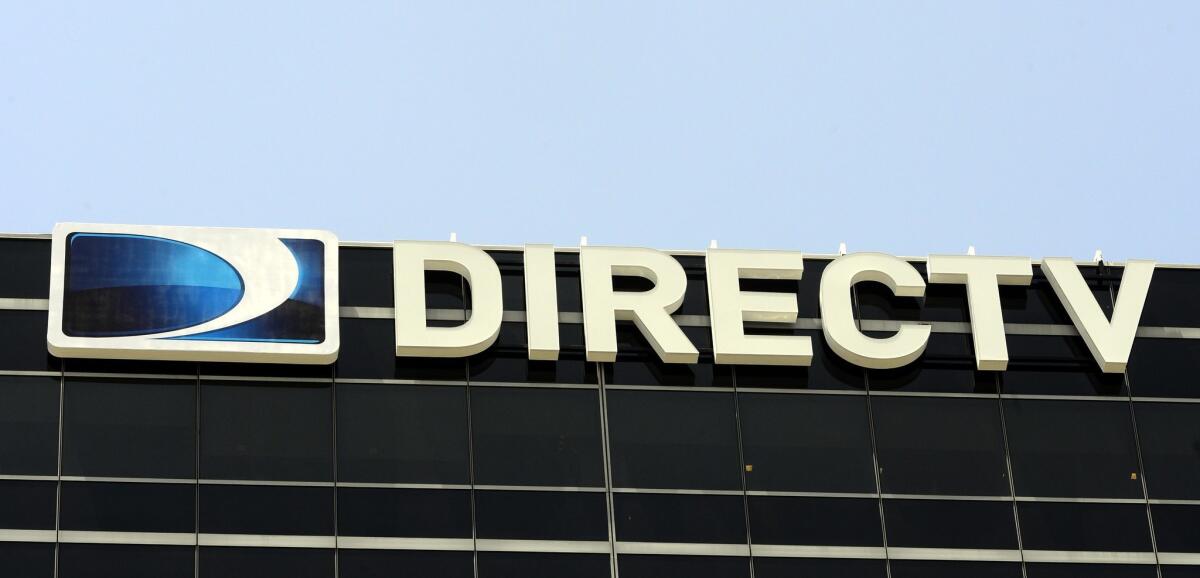Editorial: Why AT&T wants DirecTV

- Share via
Less than three years after the Justice Department put the kibosh on AT&T’s proposed $39-billion purchase of T-Mobile, the erstwhile Ma Bell is teeing up a larger deal: a $49-billion acquisition of satellite broadcaster DirecTV. The new merger raises some of the same concerns about reduced competition, but the worries aren’t nearly as pronounced as in the T-Mobile deal and the potential benefits for consumers are more obvious. A more fundamental question is whether the deal makes sense in the long run for AT&T, but that’s an issue for the investors to mull, not regulators.
No longer divided into separate product silos, telecommunications companies offer competing packages of phone, video and data services. Their ability to offer complete bundles, however, is handicapped by the geographic and technological limits of their investments. AT&T, for example, has a nationwide wireless phone network but local phone lines in only 22 states, and its fiber optic-based video service reaches only part of that area. And while DirecTV blankets the country with its pay-TV service, its satellites don’t deliver phone or high-speed broadband services. For that, it partners with other companies.
By purchasing DirecTV, AT&T would immediately pick up 20 million pay-TV subscribers, vaulting it from the eighth-largest pay-TV service to the second (assuming regulators approve Comcast’s planned acquisition of Time Warner Cable). It also would turn a major pay-TV competitor into an ally, raising concerns about prices. Yet the merged company would still face competition from at least two other pay-TV providers in most markets. The extra subscribers would also give AT&T more bargaining power with TV networks, which could slow the rise in monthly fees as well as open the door to new programming options.
AT&T’s most important assets would still be its mobile and broadband networks, both of which are costly to expand. Those networks are crucial to AT&T’s ability to satisfy viewers as they shift to watching video on demand, on any device, in any place. It’s telling that while satellite TV’s growth has slowed and cable is in decline, Netflix and other online video services are on the upswing. As efficient as DirecTV is at distributing video to mass audiences, satellites are ill-suited to the burgeoning demand for content whenever, wherever people want it.
Acquiring a pay-TV service with a national footprint, however, would give AT&T an incentive to extend broadband to communities that it doesn’t serve today. The company has pledged to do so for 15 million additional homes and businesses in its 22 states. More competition and investment in broadband is devoutly to be wished. If this deal leads AT&T to build more in those connections, that may be enough of a win for consumers to offset the loss of competition between AT&T and DirecTV.
More to Read
A cure for the common opinion
Get thought-provoking perspectives with our weekly newsletter.
You may occasionally receive promotional content from the Los Angeles Times.









